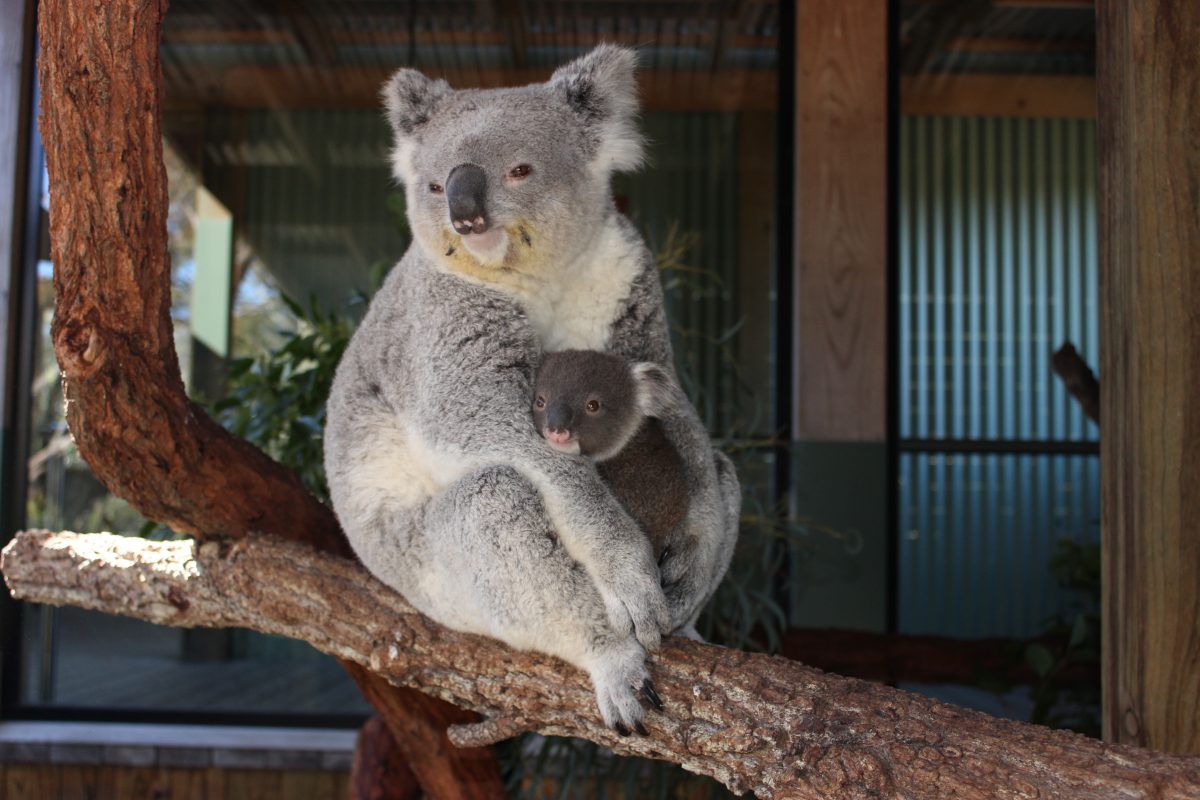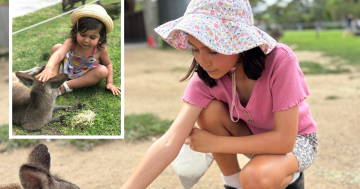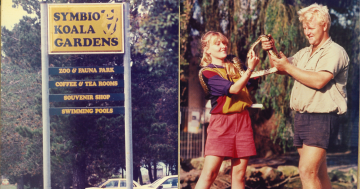
One of Symbio’s koala mothers, Imogen, welcomed a joey last year. Photo: Symbio Wildlife Park.
A small reserve in Koonawarra has delivered its first crop of valuable eucalypts to help feed Symbio Wildlife Park’s family of 17 koalas.
Almost one year ago, Koonawarra Primary School students joined Wollongong City Council and Symbio staff to plant about 700 specially selected local eucalyptus trees, aka koala food, at Koonawarra’s Eleebana Reserve.
The young eucalypts were expected to take between 18 and 24 months before they could be cultivated for enough food to help feed Symbio’s growing family of koalas.
Wollongong City Council Natural Areas Coordinator Greg Fikkers said perfect establishment conditions, consistent wet weather and savvy species selection had seen the trees mature ahead of schedule.
“Our horticulturalists worked alongside Symbio staff to select a range of eucalyptus species to suit the local environment, including those that would naturally occur here,” he said.
“This rings true for home gardeners too; do your homework and select native species that are suited to the local growing conditions.”
Symbio Wildlife Park Managing Director Matt Radnidge said Eleebana would now be added to a roster of harvesting locations to support the park’s growing family of 17 koalas, including two new joeys who had just emerged from their mum’s pouch.
“Koalas eat about half a kilo of leaves a day. That means, for every new joey we’re having, we need to plant at least 1000 new trees to sustain them for a year,” he said.
“Without access to feed source trees such as these, we would not be able to continue or expand our breeding program which helps to secure the future of the species.”
It’s estimated that koalas prefer to eat only 10 per cent of the more than 600 different species of eucalypt found in Australia.
The iconic Australian animal is listed as endangered in NSW, Queensland and the ACT. Habitat loss, traffic strikes, climate change and disease have all contributed to their population decline in recent times.
Matt said plantation sites were usually harvested every one to two months, to ensure sustainable harvests.
“To ensure it’s sustainable, and with this plantation only being young, we will only harvest the top third of the trees every two or three months.
“That’s using gardening secateurs and pole cutters to remove around a ute-load of small branches.”
The periodic, sectional harvests will be done on rotation to ensure an ongoing supply of leaves for the koalas throughout the year while also keeping the forest happy and healthy.
Greg said as well as supplying Symbio’s koalas with food, the extra trees provided shade, restored local biodiversity and absorbed harmful emissions.
“Once mature, each tree will offset around 21 kg of carbon dioxide annually,” he said.
“Trees are one of the best tools at our disposal to cool our suburbs; they also provide habitats for native flora and fauna and help reduce greenhouse gas emissions.”











